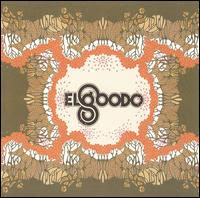
Someone who has more time than I to spend ferreting out old concert reviews, record reviews, interviews, and magazine and webzine articles (both fluffy and flaming) could have a field day cataloging (or structuring or deconstructing) the panorama of attempts at describing Neil Young's voice in print. My guess is that a safe working hypothesis to get that hermeneutic machine chuggin' merrily along would be that the description works as a shorthand for the ultimate judgment leveled at the man and his music. Nothing surprising there if you've ever made any cracks about, say, Michael Jackson or Tom Waits.
Here's a short list of said descriptions that surfaced after only two quick Google searches:
becalmed high tenor; cracked tenor; strangled tenor; disntinctively haunting thin tenor; nasal tenor; nasal twangy tenor; a tenor without any low ends; cantankerous tenor; plaintive tenor; reedy tenor; gorgeous tenor; watery tenor [that emotes with elasticity!]; tenor-countertenor; a high tenor, almost a countertenor, kind of wobbly around the edges; rock's definitive countertenor; freakish countertenor amplitude; choked-back, sobbing countertenor
You get the idea, I'm sure. Some are positive, some negative, and at least one seems to be slouching in the direction of a rhetorical masturbation fantasy. You'll have that in rock journalism.
All pseudo-controversy to one side, though, what anyone who listens to the latest installment of the Neil Young Archives: Performance Series cannot deny is the power of this cracked, strangled, wobbly, freakish, watery and elastically emoting voice to affect the audience of a concert hall and to hold them at attention with no more accompaniment than an acoustic guitar or a miked piano. Youngsters, bear in mind that the 35-year-old master for this recording was made long before digital equipment and the ability to record a live show exclusively through a mixing board. This is old school analog. You can hear the crowd along with the tape hiss. You'll shrivel at the sound of Neil Young adjusting his microphones. But when the man is playing, you'll know that those people were listening. Just like you.
Oldsters like yours truly, who still have their copies of
Young Man's Fancy, a true down-n-dirty bootleg made at the LA gigs for the same 1971 Journey Through the Past tour, have known this for decades: in 1971, well before "Heart of Gold" charted as a hit, Neil Young's voice could galvanize a room. If it does nothing else, the
Live at Massey Hall, 1971, recording provides documentary evidence of Young's early on-stage presence.

Of course, the CD offers more than that: it actually works well as an overview of Young's career on the threshold of his success with
Harvest. Two standouts for old and new fans alike are the live-set only song "Bad Fog of Loneliness" and a still-in-the-works version of "A Man Needs a Maid" and "Heart of Gold," here coupled together with soon-to-be discarded lyrics as a "suite," along the lines of "Broken Arrow" from Young's Buffalo Springfield days. The two
Harvest songs would take their final shape less than a month later (as a bootleg of a February 27, 1971 show attests), but this early version provides an interesting glimpse into Young's composing process.
Although the Journey Through the Past tour supported Young's third solo album,
After the Gold Rush, only two songs from that album "Tell Me Why" and "Don't Let it Bring You Down" make it into the setlist. Two Springfield-era songs, "On the Way Home" and "I am a Child" bookend the setlist, which also contains two songs from his eponymous debut album, "The Old Laughing Lady" and "The Loner"; two songs from
Everybody Knows, "Cowgirl in the Sand" and "Down by the River"; another
Harvest song, "Old Man," (perfectly sung); two CSNY songs, "Helpless" and "Ohio"; one Crazy Horse song, "Dance Dance Dance" (another live show mainstay); "See the Sky About to Rain," which was finally released three years later on the contemporaneously bitched about
On the Beach; as well as "Journey Through the Past" and "Love in Mind," also released in 1974 on the still damnably out of print live album
Time Fades Away.
All in all and without half trying,
Live at Massey Hall 1971 does an even better job than the previously released Fillmore concert CD to whet my appetite for the 8CD/2DVD box set,
Neil Young The Archives Vol 1 1963-1972, scheduled for release sometime this fall. I'm expecting plenty of early takes and re-takes of songs that didn't see recorded form until well after 1972. I'm also expecting plenty of plotz that only a longtime fan will want to listen to. But I'll tell you one thing: if there isn't at least one kickass version of "Sugar Mountain" anywhere in that box set, Neil Young had better take out a restraining order! Or invite me to the ranch for dinner.























